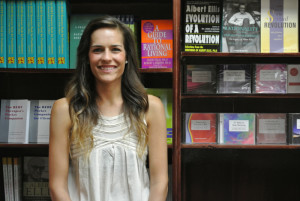by Shannon O’Neill, MA
What is your biggest concern at the present moment?
Finances? Health? Relationships?
Regardless of the topic, I can safely assume 100% certainty is nonexistent. Therefore, if control is truly limited, why do we choose to obsess over the situation? Maybe we are demanding a particular outcome or we cannot bear to imagine the worst-case scenario. Yet, how helpful is this? For example, does worrying about the uncertainty of money make one wealthy? It might, if worry generates productivity, but typically worry does not produce control.
People often state, “I don’t do well with uncertainty.” Because of this thinking, they frequently avoid situations, seek reassurance, and even self-sabotage in order to experience temporary relief. Unfortunately, the more one is resistant to uncertainty, the more unpleasant his or her emotions and behaviors become. If you ask yourself about prior uncontrollable events, you may notice that regardless of the outcome, worrying profusely about it likely did not change what happened. This is evidence to suggest that living in the future is unproductive, as it is occupied with uncertainty.
Many things in this world are outside of our control. One can fabricate “what if” statements all day, but this rumination lacks a solution and generates unwarranted anxiety. Therefore, acceptance of future uncertainty is crucial for our peace of mind. This does not mean one should become complacent with what is in their control. Rather, once an individual recognizes a situation is gray, he/she can let go of the need for absolute control as well as generate fewer irrational demands and expectations. In conclusion, it is suggested we strive to live in the present and troubleshoot dilemmas as they come, for “the only thing certain is uncertainty.”

